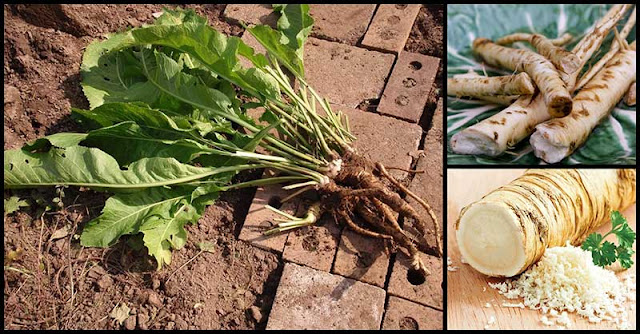Horseradish is a powerful root that is used mainly in culinary practices. It is native to southeastern Europe and western Asia but is now grown around the world. This popular condiment that tastes hot is related to mustard, wasabi, broccoli, cabbage, and other cruciferous vegetables.
Aside from its culinary uses, horseradish has a long history of being a versatile herbal remedy. It contains various compounds that have been found to possess beneficial properties.
In a study published in the Journal of Agricultural and Food Chemistry, researchers from the University of Illinois found that this humble root vegetable known as horseradish may help protect the body from cancer. The results of this study showed that the crop contains compounds that could help detoxify and eliminate cancer-causing free-radicals in the body.
Previous studies revealed that horseradish contains cancer-fighting compounds known as glucosinolates. These important components increase the ability of the liver to detoxify cancer-causing chemicals and suppress the growth of existing cancerous tumors. Glucosinolate type and quantity vary depending on the size and quality of the crop’s root.
For the current study, researchers have found that horseradish contains nearly 10 times more glucosinates than broccoli. They looked for the products of glucosinolate hydrolysis which stimulate enzymes involved in detoxifying cancer-causing substances. They compared the quantity and activity of these products in 11 horseradish strains rated U.S. Fancy, U.S. No. 1, or U.S. No. 2. The USDA puts fresh-market horseradish in these categories based on the diameter and length of the root.
At the end of the study period, researchers have found that the higher-grade U.S. Fancy horseradish roots had dramatically more glucosinolates than U.S. No. 1. Moreover, concentrations of various glucosinolate hydrolysis products were found to be differed according to USDA grade, with U.S. Fancy having greater allyl isothiocyanate (AITC) and U.S. No. 1 having greater 1-cyano 2,3-epithiopropane (CETP). AITC was revealed to possess a higher level of cancer-fighting activity as compared to CETP.
Based on the results, the team suggests that AITC is a good dietary anti-carcinogen, not only because it activates the enzyme responsible for detoxifying cancer-causing molecules, but also because a large proportion of it, almost 90%t, is absorbed when ingested.
Moreover, some other studies have found that horseradish compounds, such as sinigrin and peroxidase, may fight cell damage caused by free radicals. These reactive molecules may increase your risk of diseases, including cancer, when levels become too high in your body.
Additionally, test-tube studies suggest that horseradish compounds may prevent the growth of colon, lung, and stomach cancer.
Other Beneficial Uses Of Horseradish
Helps Relieve Sinus Discomfort
The juice or sauce extracted from its roots has been used traditionally to treat sinusitis. According to experts, taking half teaspoonful of grated horseradish sauce without dilution both morning and afternoon can provide some help. Avoid eating for at least ten minutes after the dose.
Helps Improve Respiratory Conditions
Horseradish possesses a strong odor that can help clear the nose and respiratory system. Pure radish consumption can help stimulate the secretion of juices that aids in clearing out congestion caused by allergy or cold.
Helps Treat Urinary Tract Infections
Horseradish possesses antibiotic properties that can help treat UTI. Aside from this, its compound sinigrin also works as an effective diuretic and prevents water retention, thus helping deal with urinary tract infections.
Helps Improve The Nervous System
Present in horseradish are important amino acids, vitamins, and minerals. Some of its essential nutrients include vitamin B9 or folate or folic acid play a significant role in the regulation of specific amino acids that the nervous system requires.









